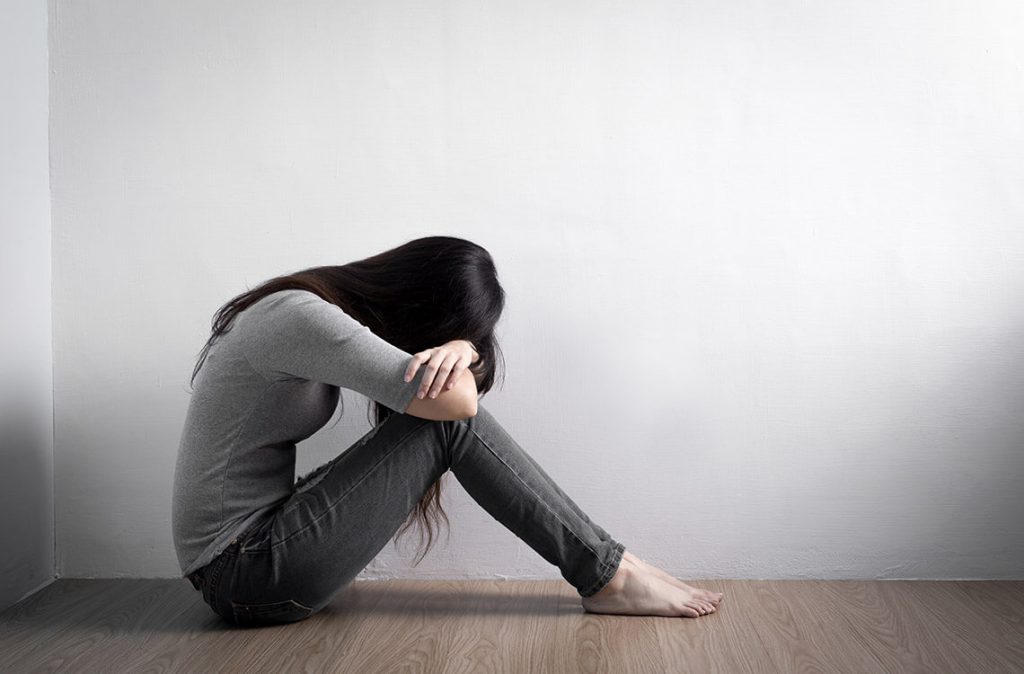The ongoing misconception about depression is that it’s just feeling “a little sad”. But for those who actual struggle with this disorder, dealing with the symptoms may not be as simple as that.
Everyone goes through bouts of sadness, but depression, or rather major depressive disorder can ruin relationships, careers, and even cause suicidality.
Recognising the early warning signs of depression can help you, or a loved one, like your children or spouse, seek help and recovery. With the correct guidance and medical intervention, a person with depression can lead a normal, happy life.
One thing to remember with depression is that not everyone experiences it the same way. Depression can generally be classified into mild, moderate or severe depression. Each with their own unique tell-tale symptoms.
However, as with all mental disorders, it’s important to get yourself properly diagnosed by a trained medical professional. But in the meantime, learn these warning signs so you know when to worry if you or your loved ones are starting to show some of its red flags.
Mild Depression
Mild depression, also called dysthymia or persistent depressive disorder is the least severe but the hardest to diagnose.
Your symptoms come and go, but it can be serious enough to interfere with your daily activities. Leading to most people often brushing it off as burnout or “mental breakdown”.
People with mild depression usually don’t bother discussing it. But if symptoms persist for most of the day, on an average of four days a week for two years, then you may be suffering from mild depression.
If you or anyone you know experiences 5 to 9 of these symptoms for four up to a week with no breaks, then you may have mild depression:
- hopelessness, despair, guilt
- irritability, anger, mood swings
- loss of interest in hobbies
- fatigue and daytime drowsiness
- increased or decreased appetite
- sleep problems or insomnia
- weight loss or gain
- lack of motivation
- self-loathing
- difficulties concentrating
- disinterest in socialising
- reckless behaviour, substance abuse
Catching mild depression is important to prevent it from escalating to moderate or severe depression.
But just because it’s hard to diagnose at times, doesn’t mean it is difficult to treat. Lifestyle changes are usually enough to stave off symptoms of mild depression as long as you are diagnosed early.
Moderate Depression
On the middle of the scale is moderate depression, which shares the same symptoms as mild depression. However, the depressive episodes are often severe enough to affect your career and your close relationships.
Moderate depression is easier to diagnose because of how much it can disrupt your personal life. Symptoms of moderate depression can last for one or two weeks (sometimes even a whole month) straight with no breaks in between.
Some additional symptoms of moderate depression include:
- self-esteem issues
- feelings of worthlessness
- reduced productivity
- excessive worrying
- increased sensitivities
This is the stage where a doctor will usually prescribe antidepressants. These medications can take up to six weeks to take full effect. The psychiatrist may also recommend cognitive behavioral therapy or CBT to help the person deal with their symptoms without medication.
Severe Depression
Often also called major depression, severe depression is harder to conceal from your loved ones. The symptoms are generally obvious and you may not even need a checklist to recognise the signs.
Major depressive episodes typically last for six months or longer. Sometimes severe depression can go away after a while, but it can also be recurrent for some people. Diagnosis is especially crucial in severe depression, and it may even be time-sensitive.
Severe depression should ideally tick a lot of the boxes under mild and moderate depression, but the person must also display the following signs in order to be officially diagnosed with a major depressive disorder:
- hallucinations
- delusions
- stupor
- suicidal ideation and behaviour
While it’s important for sufferers of mild and moderate depression to get diagnosed soon, it’s undeniably more crucial for those with severe depression.
Those with major depressive disorder should seek medical treatment as soon as possible. The doctor will usually prescribe an SSRI drug (Selective serotonin reuptake inhibitor) coupled with therapy.
Recognise the Warning Signs
As we all know, depression has never been an easy subject to discuss, particularly in Asian households. We were often gaslit into thinking we’re fine by adults who don’t really know any better.
We hope this changes in the future as more Malaysian parents become aware of the importance of mental health awareness. So that future generations can lead better happier lives.
If your kids are telling you they may be depressed, try not to gaslight, manipulate or otherwise dismiss their fears. Take them to a medical professional to get them tested. It may just save their lives.
If you or anyone you know is suffering from depression don’t hesitate to call this emergency hotline: 03-76272929 (Befrienders).
Disclaimer: The information provided in this article is for informational purposes only and should not be considered as medical advice from Motherhood. For any health-related concerns, it is advisable to consult with a qualified healthcare professional or medical practitioner.
For more insightful stories and fun recipes, stay tuned to Motherhood Story!
